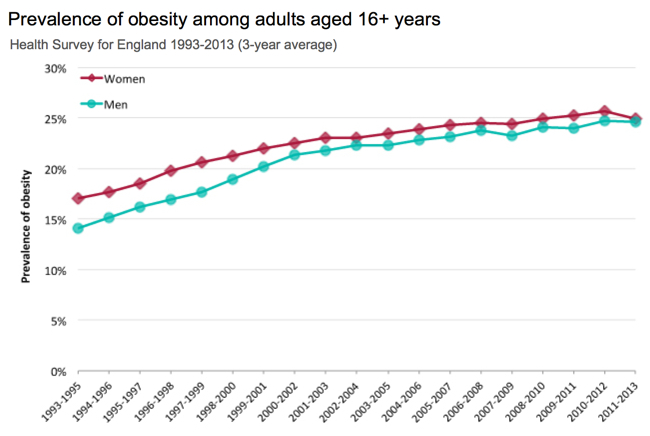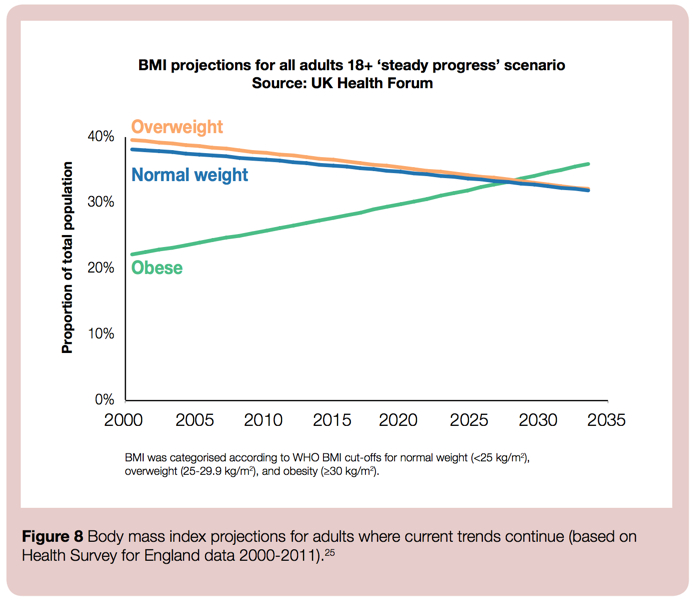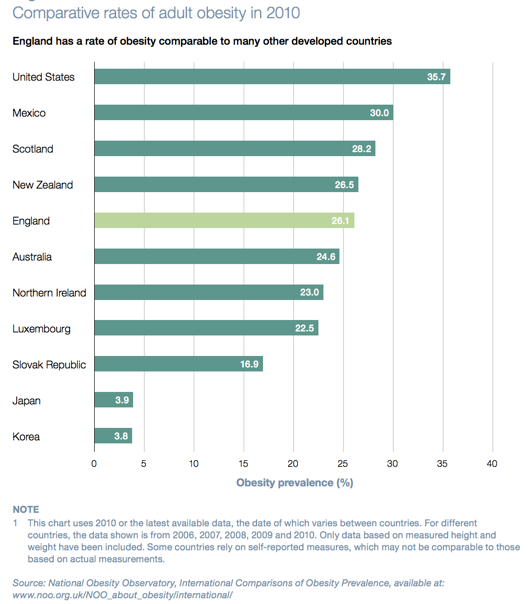Impacts of obesity
Obesity presents a significant threat to the health of the UK population and a significant drain on the nation's financial resources. 24.9% of adults in England are obese—with a body mass index of over 30—62% of adults are either overweight or obese (with a BMI of over 25), and 32% of 10–11-year-olds are overweight or obese. The annual cost of obesity to the UK is estimated to be £27bn–£46bn [1], [2]; although international comparisons suggest that the true cost could be significantly higher.

Source: Public Health England – Obesity
If the historic trends persist, one in three people will be obese by 2034
[6] (see chart below); although there are encouraging signs that the trend appears to have levelled off in children and may be levelling off among younger adults (reflecting, perhaps, the systemic progress being made in recent years).
[8]
Nonetheless, the absolute level of obesity remains very high and England (along with the rest of the UK) ranks as one of the most obese nations in the world; there are no signs yet of a sustained decline, and (as obesity tends to increase with age) the UK's ageing population remains a concern.
